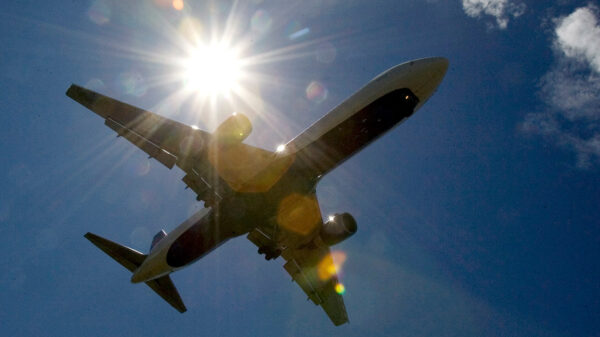By Noa Yachot, Communications Strategist, ACLU
An extraordinarily secret government blacklist just got a little bit less secret.
Seven American citizens who were banned by the government from air travel received word yesterday evening that they are cleared to fly. For them, the notice ends a years-long struggle to find out why they were blacklisted and clear their names. As of last night, the seven can finally make plans to visit family, travel for work, and take vacations abroad.
The seven – six men and one women – had been on the government No Fly List, which prevented them from flying to, from, and over U.S. airspace. Even after they were surrounded by TSA agents at the airport and questioned by the FBI, the government refused to officially confirm that they were included on the list. They were also never provided reasons for being banned from air travel, or given a meaningful opportunity to contest the ban. In short, our clients have been locked in a fight to regain their freedoms with virtually no information.
The notice that the seven are “not currently on the No Fly List” came after a federal court last week set deadlines for the government in the ACLU’s challenge to the No Fly List. The court ruled that the government must notify our clients of their status on or off the No Fly List, give reasons to those still on the list, and provide an opportunity for them to challenge those reasons. The first of those deadlines was yesterday, and the government must complete reconsideration of the remaining cases by January 16.
These deadlines follow a June ruling by federal judge, striking down as unconstitutional the government’s procedure for challenging inclusion on the No Fly List.
Yesterday’s milestone isn’t only significant for the seven American citizens who can finally resume their lives. It also makes clear to the six other clients in the case that they’re still banned from flying. And while that may not seem like good news, it’s the first time the government has confirmed – albeit through negative implication rather than a direct confirmation – that people are on the No Fly List. It’s also a very basic victory for due process, because under our Constitution, the government can’t watchlist people and deny them basic freedoms without then telling them they’re blacklisted and why.
Our client Abe Mashal had this response:
"More than four years ago, I was denied boarding at an airport, surrounded by TSA agents, and questioned by the FBI. That day, many freedoms that I took for granted were robbed from me. I was never told why this happened, whether I was officially on the list, or what I could do to get my freedoms back. Now, I can resume working for clients who are beyond driving distance. I can attend weddings, graduations, and funerals that were too far away to reach by car or train. I can travel with my family to Hawaii, Jamaica, or anywhere else on vacation. Today, I learned I have my freedoms back."
Our clients have been living in limbo for years, without the ability to challenge a secretive government system that has dramatically curtailed their freedoms. While yesterday’s notice is long overdue and doesn’t make up for the burdens our clients have long endured, it is good news for the seven who can fly again. And the others look forward to finally receiving from the government its reason for watchlisting them, so they can correct errors or innuendo and clear their names.
For the first time ever, the unfair and unnecessary secrecy regime surrounding the No Fly List is beginning to crumble.
The government has committed to revamping the No Fly List redress process more broadly. We expect it to make good on its word and move quickly to give everyone else on the list the opportunity to clear their names.

